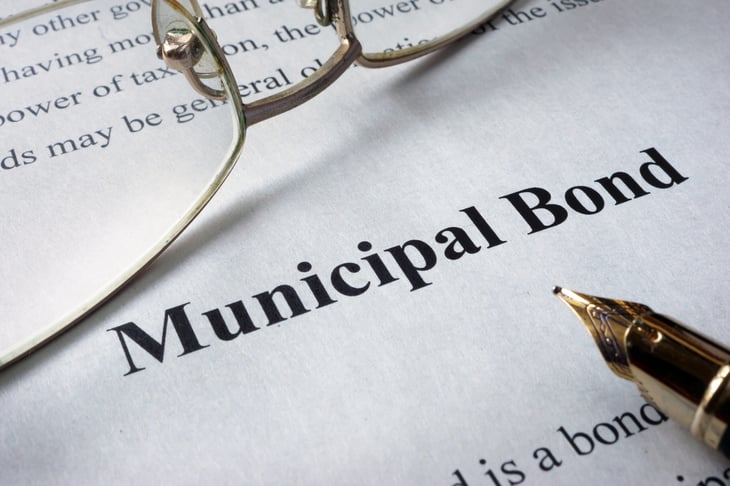
If you are ready to retire, “safe and smart” investments probably sound more appealing than ever before.
Most of us want to dial down risk in our post-work years. Without a steady paycheck to count on, a little more caution seems prudent.
But the reality is that while work eventually ends, expenses go on and on. Finding ways to cover those costs becomes one of your biggest post-career jobs.
Following are a handful of safe and smart places where retirees can put their cash. While some involve a degree of risk, none is typically as volatile as investing in the stock market or starting a full-fledged small business.
1. Municipal bonds

Long a staple of retirement investing, municipal bonds offer two potential tax advantages:
- The interest you earn on them is free of federal income taxes.
- The interest may be free of state and local taxes if you live in the state that issued them.
However, be careful here: Holding too much money in municipal bonds could actually force you to pay taxes or to pay more taxes when combined with the income of your Social Security benefits. So “tax-free” municipal bonds might end up costing you money.
Confused? We clarify in “5 Ways to Avoid Taxes on Your Social Security Income.”
2. Peer-to-peer lending

Become a real-life banking mogul by joining the world of peer-to-peer lending.
With peer-to-peer lending, individuals post loan requests on a peer-to-peer lending site, and you agree to fund the loan. In return, you earn cash based on the loan’s interest rate.
Sounds like a great deal, and it can be. But peer-to-peer lending is not without risks. For example, the borrower could default, damaging your returns. In general, the more risk you are willing to take on, the greater the danger — but also, the higher the return.
The bottom line: This is a relatively safe — although not absolutely guaranteed — way to earn cash.
3. Annuities

Annuities are a way to save money in retirement without having to worry about the vagaries of the stock market. In exchange for putting some amount of money down, you will get money flowing into your retirement coffers.
As Money Talks News founder Stacy Johnson has pointed out, some types of annuities are like CDs from insurance companies while others more closely resemble payments from a pension plan.
Annuities are among the safer places to put your money in retirement, but they also come with a few drawbacks — some of them significant. For more, check out Stacy’s take in “Your Top 5 Retirement Questions, Answered.”
4. I bonds

Series I government savings bonds are a great investment during inflationary times. These bonds offer a payout that is based on a combination of a fixed rate and an inflation rate. The composite rate on these bonds — which have a 30-year final maturity — changes every six months.
Earnings are exempt from state and local taxes, and you have the option of deferring federal taxes until you redeem the bond.
Recently, Series I bonds have been paying a higher interest rate because of elevated inflation. And if things reverse course dramatically and the country has a period of deflation, the bond’s redemption value will not decline.
5. TIPS

Better known as TIPS, Treasury inflation-protected securities pay interest like normal bonds but also adjust the principal to cover inflation.
The inflation adjustment is tied to the Consumer Price Index. So no matter how bad inflation gets, you should keep pace — or something close to it — with rising prices. The benefit is that you won’t lose purchasing power as the years roll on.
TIPS have drawbacks: The core rate they pay out typically is lower than that of other bonds, the inflation adjustment is measly when prices don’t rise, and TIPS can lose money if we have deflation.
6. Real estate

Residential home values have soared in recent years, but that is not what we’re talking about here. After all, we’ve all learned that soaring highs quickly can give way to plummeting lows when it comes to home values.
Instead, we’re talking about rental real estate. Whether you plan to purchase a rental home or simply want to rent out your basement, you can turn any property into an investment that will provide income for years to come.
Of course, life as a landlord isn’t always pleasant. So, go in with your eyes open.
7. CDs and savings accounts

For years, savings rates on CDs and savings accounts were a bad joke, often just a fraction of 1%.
Today, that has changed. As the Federal Reserve has quickly ramped up its target federal funds rate over the past year or so, banks have responded by offering much more generous returns on CDs and high-yield savings accounts. Today, it’s relatively easy to find payouts of up to 5% or even more.
To earn these generous payments, stop by the Money Talks News Solutions Center and search for a great savings account or CD rate.
8. Invest in a side hustle

Yes, we know that you have retired — and retired typically means no longer working. But one great way to generate a little extra income is to use your newfound free time to develop a side hustle that you enjoy.
If you would prefer something that doesn’t require an investment, you could also pick up a part-time job working for an employer.
For more on such opportunities, check out:
- “9 Top-Paying Side Hustles Where You Could Earn More Than Full-Time Work“
- “20 Great Part-Time Jobs for Retirees“
9. Start Social Security at 70

This may be the most overlooked option on this list — and just possibly the best.
Annuities are a great way to bring in secure, guaranteed income, but many come with a large drawback: The payouts do not adjust for inflation. Over the years, this can seriously eat into your returns, potentially lowering your standard of living.
It’s true that you can buy annuities that will adjust for inflation, but they are expensive. So, if you can afford to be patient, a better option might be to wait until age 70 before applying for Social Security benefits.
For each year after what’s known as your “full retirement age” that you delay claiming, up to age 70, your benefit will increase by up to 8%. Plus, Social Security benefits generally receive an inflation adjustment each year.
It is tough to beat an inflation-adjusted monthly payment that is good for life and backed by the U.S. federal government.
So, for some people, it might be smart to spend some savings now if it means you can push off filing for Social Security until later. Consider that current spending a “smart investment” in your future.
For more on this strategy, check out “The Annuity Everyone Needs — and Anybody Can Get.”





Add a Comment
Our Policy: We welcome relevant and respectful comments in order to foster healthy and informative discussions. All other comments may be removed. Comments with links are automatically held for moderation.